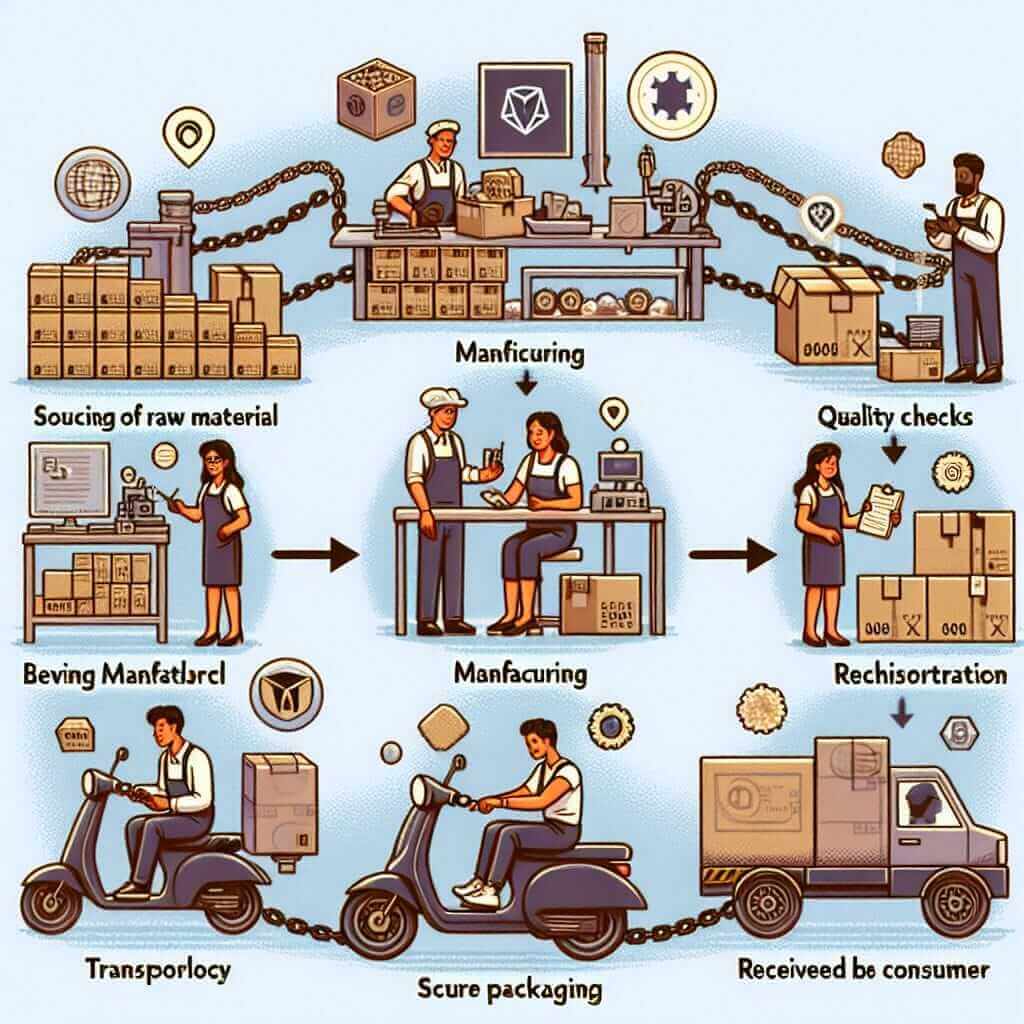The IELTS Reading section tests a candidate’s ability to understand and interpret written texts within a limited period. This section includes a variety of question types designed to evaluate different reading skills, such as skimming, scanning, and detailed reading. One emerging topic with high relevance is the use of blockchain technology to track sustainable practices. Given its prevalence in recent years, exploring this subject can provide valuable practice for IELTS test takers.
Introduction to IELTS Reading Section
The IELTS Reading test comprises three sections, each progressively more difficult, designed to assess a range of reading abilities. Candidates have 60 minutes to answer 40 questions. Subjects range from everyday topics to more specialized, scholarly articles, often reflecting contemporary issues and advancements.
In recent years, technological trends such as blockchain technology and sustainability have become increasingly prominent. Given their real-world applicability and current relevance, it is highly probable that test subjects on such themes may reappear in future IELTS examinations.
Practice Reading Test
Reading Passage: Blockchain Technology and Sustainable Practices
Blockchain Technology in Sustainable Development
Blockchain, a decentralized ledger system, is revolutionizing various sectors, prominently including sustainable practices.
Paragraph 1: Blockchain technology serves as a secure and transparent way to record transactions. As the world shifts towards more sustainable business models and practices, blockchain has emerged as a critical tool in ensuring traceability and accountability. Numerous companies now employ this technology to verify the origins and ethical production methods of goods and services.
Paragraph 2: One significant application of blockchain is in the supply chain sector. Blockchain’s immutable records allow businesses to trace every step of a product’s journey, from raw materials to the final consumer. For instance, food industries harness blockchain to guarantee that their products are organically sourced, and electronics companies use it to ensure conflict-free minerals.

Paragraph 3: Another area benefiting from blockchain is renewable energy. Blockchain facilitates peer-to-peer energy trading, allowing individuals to sell surplus energy generated from renewable sources to neighbors, thus promoting sustainable consumption. Furthermore, blockchain helps in verifying carbon credits and ensuring that environmental initiatives are genuine and effective.
Paragraph 4: Challenges remain in the extensive implementation of blockchain for sustainable practices. High energy consumption for blockchain operations and the need for global regulatory frameworks are foremost concerns. However, advancements in technology and policy could soon alleviate these issues, making blockchain indispensable for sustainable development.
Paragraph 5: In conclusion, blockchain technology holds significant promise for fostering sustainable practices by ensuring transparency and efficiency in multiple sectors. Continuous innovation and regulatory support will further cement its role in driving global sustainability.
Questions
Multiple Choice (Choose the correct letter, A, B, C, or D)
-
What is the primary function of blockchain technology mentioned in the text?
- A) To decentralize financial transactions
- B) To provide transparency and security for transaction records
- C) To track carbon credits
- D) To facilitate global trade
-
Which sector is highlighted as significantly benefiting from blockchain in Paragraph 2?
- A) Healthcare
- B) Education
- C) Supply chain
- D) Tourism
True/False/Not Given
-
True/False/Not Given: Blockchain technology is only applicable in the food industry.
-
True/False/Not Given: The energy consumption of blockchain operations is mentioned as a challenge.
Matching Information
Match each statement with the correct paragraph.
-
Paragraph 1: Introduction of blockchain in sustainable practices.
-
Paragraph 3: Use of blockchain in renewable energy.
Answer Key and Explanations
-
B) To provide transparency and security for transaction records.
- Explanation: In Paragraph 1, the text emphasizes that blockchain offers a secure and transparent way to record transactions.
-
C) Supply chain.
- Explanation: Paragraph 2 discusses blockchain’s significant impact on the supply chain sector.
-
False.
- Explanation: While the food industry is mentioned, Paragraph 2 also discusses its application in the electronics industry, implying blockchain’s broader use.
-
True.
- Explanation: Paragraph 4 mentions high energy consumption as a challenge in blockchain implementation.
-
Paragraph 1.
-
Paragraph 3.
Common Issues and Tips for Improvement
- Misinterpretation: Test-takers often misinterpret specific technical terms. To avoid this, focus on context and surrounding sentences to infer meanings correctly.
- Skimming and Scanning: Improving these skills can help identify key points quickly, ensuring efficient use of time during the test.
- Practice with Variety: Using varied texts helps adapt to different writing styles and subject matters.
Vocabulary and Grammar Focus
Vocabulary:
- Decentralized (adj.) [ˌdiː.senˈtræl.aɪzd]
- Meaning: Distributed away from a central authority or location.
- Immutable (adj.) [ɪˈmjuː.tə.bəl]
- Meaning: Unchanging over time or unable to be changed.
Grammar:
-
Comparative Structures: used to compare blockchain technology’s impact on different sectors.
- Example: Blockchain is more effective in supply chain management than in other industries.
-
Passive Voice: Highlighting actions rather than who performs them.
- Example: Blockchain is used to record transactions securely.
Final Advice for High Scores in Reading
- Time Management: Allocate appropriate time to each section, and avoid spending too much time on difficult questions.
- Thorough Practice: Regularly practicing with diverse text types can enhance comprehension skills.
- Vocabulary Expansion: Building a strong vocabulary aids in better understanding and quicker interpretation of texts.
- Mock Tests: Simulate the actual test environment to build confidence and performance consistency.
Continued dedication and systematic practice will pave the way to achieving high scores in the IELTS Reading section.